Photos: Water’s Heroes, Victims, & Villains at CSV Global Forum in Colombia
Circle of Blue director J. Carl Ganter recently sat on a panel about water, environment, and food security in Colombia. See his take on this drama’s main characters in photos that he took in Cartegena’s poorest neighborhoods and how they relate to the global picture.
“The changing role of business in development” was the theme for the 2013 Creating Shared Value Global Forum, the fifth meeting of its kind, held on Monday, October 28, in Cartegena, Colombia. A whopping 500 minutes, or more than eight hours, of the conference’s many panels and discussions are available via webcast, about 15 minutes of that devoted to Circle of Blue’s director, J. Carl Ganter. Check out the video — Carl starts at about 4 hours and 46 minutes — and find the transcript below.
J. Carl Ganter: Well, I’m a journalist, and I hope that everybody here is getting the feeling that this is the biggest story of the century. Every time I hear it, the hair on the back of my neck goes up. And it’s also a story that’s very personal and relevant. So, in what I can do in a day, I did spend Saturday in the neighborhood of El Pozon, which isnt far from here, but it is a very vulnerable community. We talk about water, we talk about sanitation. It’s a community without a lot of taps, and many people don’t have toilets. So you can imagine the economic pressures and the social pressures when you don’t have safe drinking water, when you don’t have a place to go to the bathroom.
So I spent all day Saturday with real families. And when we talk about shared values, I wanted to learn: how do you take a community — particularly one that is not far from here, it’s only a 20-minute cab ride — and get a feeling for how complicated is it to bring safe drinking water and sanitation to a community. So I’m going to take you on just a quick tour.
[First Picture] This is a typical home in New Horizons. It’s a community in El Pozon, which, coincidentally, means The Well. But there isn’t a lot of water there that is safe to drink. This is a typical home. Notice that it’s a dirt floor. A very young family. And because of need, they qualified for a toilet and a connection. There is a social process that you can apply for a toilet and a connection. And it’s all part of developing a whole new process that engages the community and also lays the groundwork for community development.
[Second Picture] So here’s another typical home. The roof leaks. The floor is not solid. There are many, many children. But they have a toilet. They have a place to go to the bathroom, and they have safe drinking water. But what I learned is that this takes hard work. It’s not just dollars, it’s not just investment, it’s not just engineering.
[Third Picture] This is Milena Morano, and she’s a social worker. She has visited 5,000 homes in this community. Her goal is to make 4,000 of those water and sanitation sustainable — so people have a toilet, people have safe drinking water. Imagine that. That’s 5,000 homes. That’s not a Google Click away; it’s knocking on the door and building trust within the community, getting into the home, surveying it, and then assessing, “How do you build a toilet? Where do you put it? How do you engineer it?” So she said that for every two engineers, there were eight social workers. These are writers: how do you communicate this issue? These are psychologists: how do you build this issue into the community so that it’s accepted and people actually understand the process? And these are social workers: how do you tell somebody here they get a toilet and water, but tell somebody here they don’t until they meet certain standards or commitments.
[Fourth Picture] What I learned though, and this is universal around the world, is that this is a big drama. There are heroes, victims, and villains in this story. Journalists love dramas. Personally, we love heroes. I met Ruth Marlena, who invited me to stay with her over night, but I wasn’t able to. Still, I learned that in a community like this — this is the most-stressed community in El Pozon, New Horizons, which is a fitting name — Ruth Marlena is the elected speaker for the community. She is the one that can open the doors for Milena; she can actually get in and build that trust. In every situation, when you say water is a local issue, there are people on the ground who are the ones that we have to engage with. We have to show, “What does shared value mean?”
[Fifth Picture] This is the pride of the toilet. This is the nicest room in the home. This is the room where the roof doesn’t leak, where floor is clean, where the sink is clean. This is the nicest room in the home.
[Sixth Picture] Something else that’s really interesting is that across El Pozon, where there are connections, there are meters. So they pay for water; the water is appreciated. The bottom line here, the whole goal here, is to create a business model: to sell the toilets (right now there is a transition period) and the service at a localized price — this is not a price that is handed down from above — at a localized price, so that people can actually afford it. If they can afford a piece of it, they’ll still get the toilet, they’ll still get the sink, but they participate. And they participate in the design of the actual toilet space, of the bathroom.
[Seventh Picture] This is the other side of the world, India. When you don’t value water, or when you don’t value something that is close to your heart, this is what happens. This is flood irrigation, common in many parts of the world, but this is flood irrigation from a well that’s about 100 meters deep, and a well that runs 24 hours a day, seven days a week, every day of the week. There’s not even a switch; it’s hard-wired. And they’re irrigating things which, my big argument is, that don’t need to be irrigated. So when we look around the world, and we see value, this is what the value looks like.
When we’re able to bring safe drinking water to a community that is a 20-minute cab drive from here, we’re able to see the pressures start to relieve. With community development, people are able to go to school — the other intense situation that I saw on Saturday night was the violence and some of the other things that are in these communities — these things start to go away.
J. Carl Ganter is co-founder and managing director of Circle of Blue. He is a journalist and photojournalist, recipient of the Rockefeller Foundation Centennial Innovation Award, and an Explorers Club Fellow.

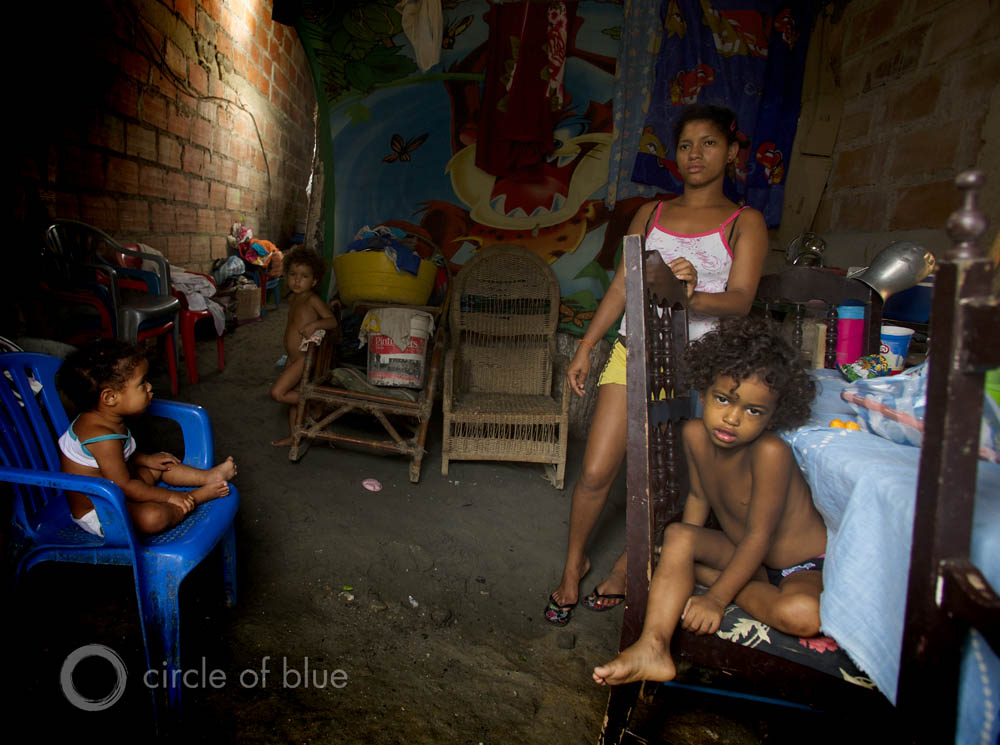
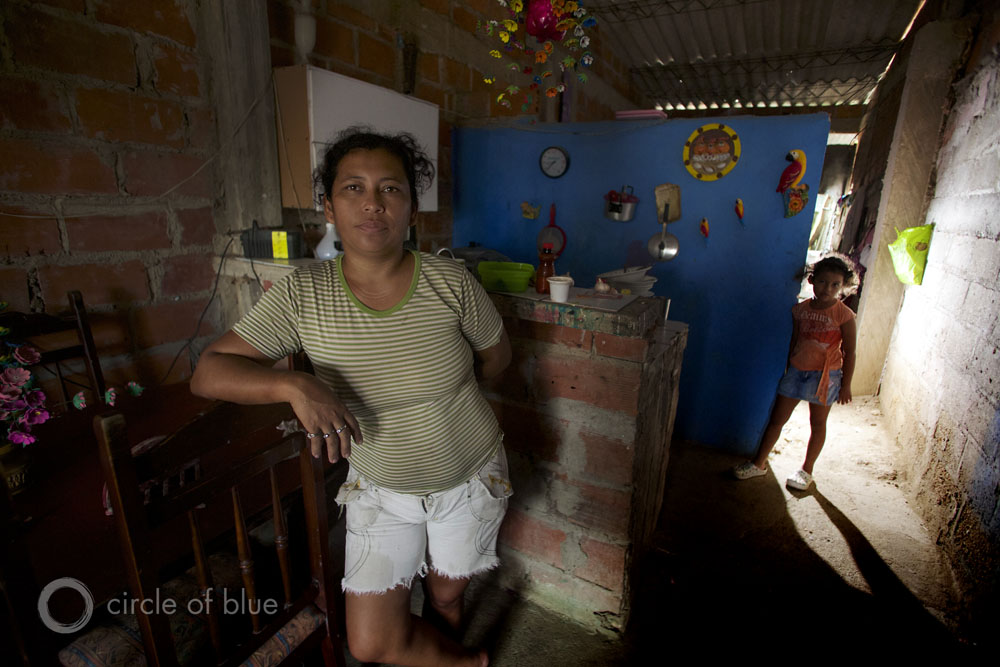
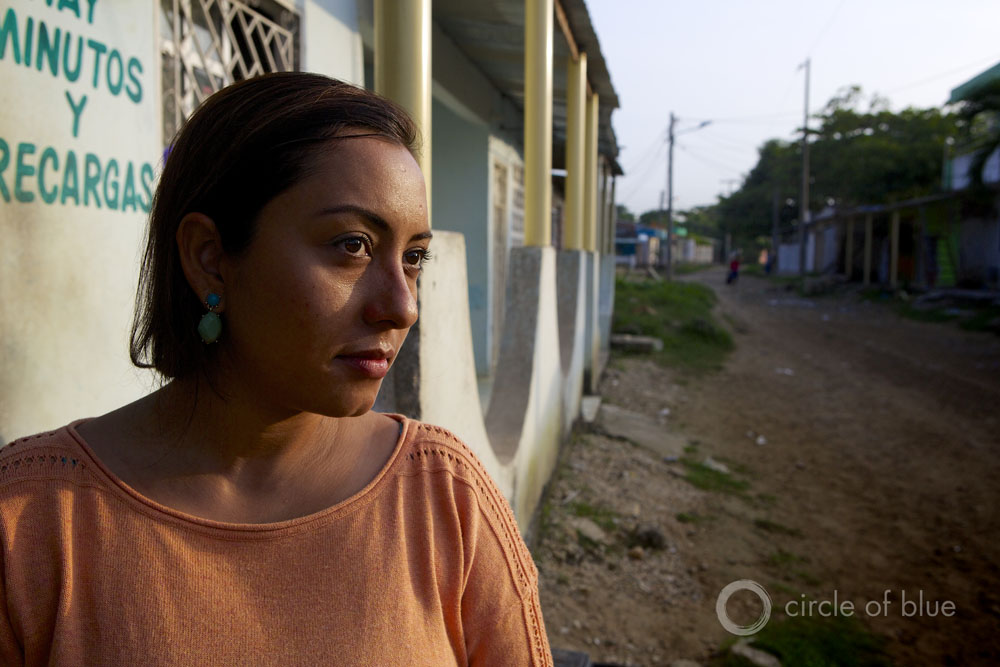
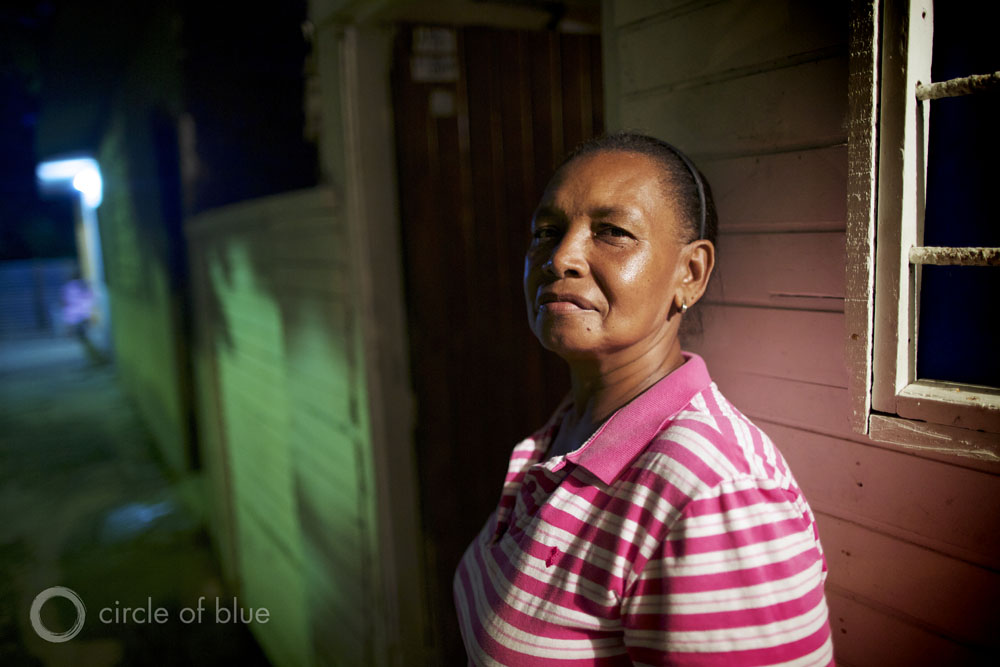
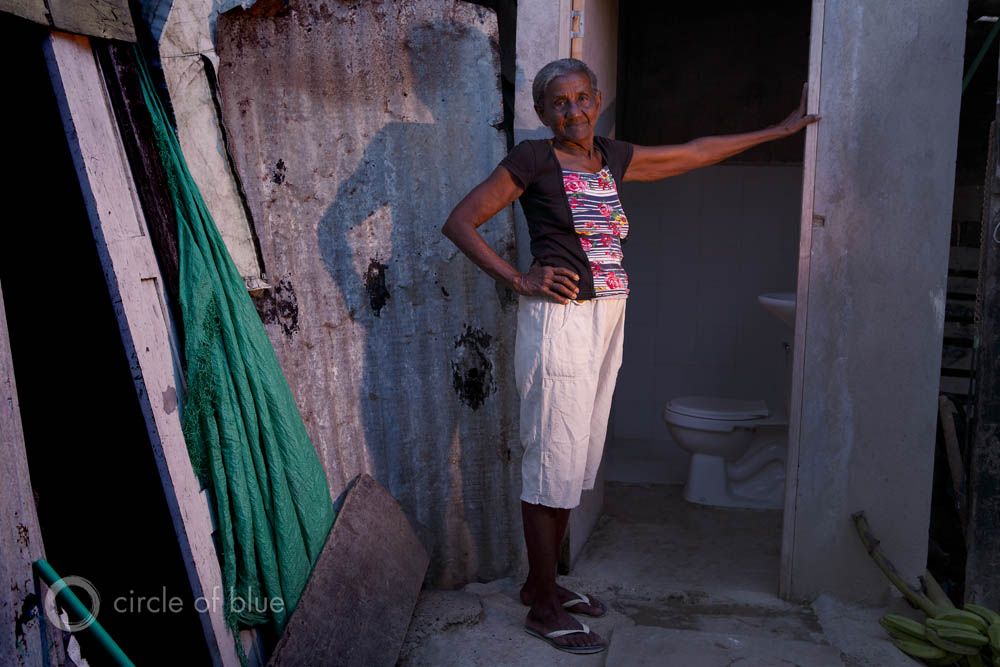
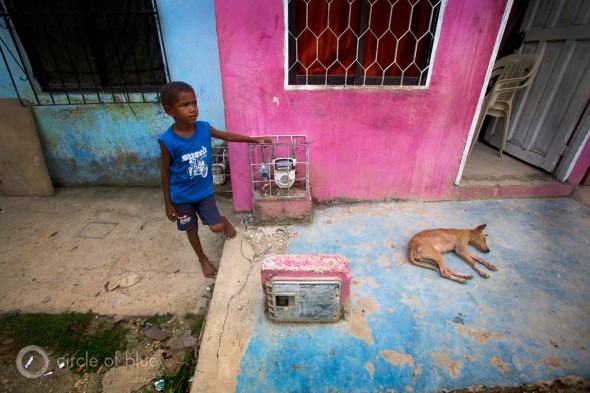
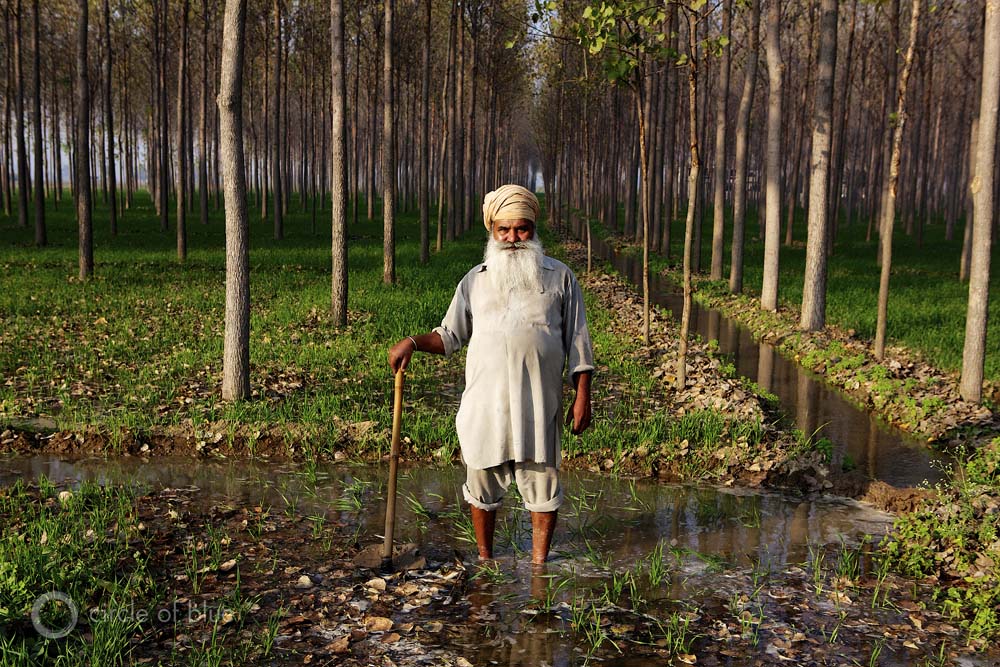


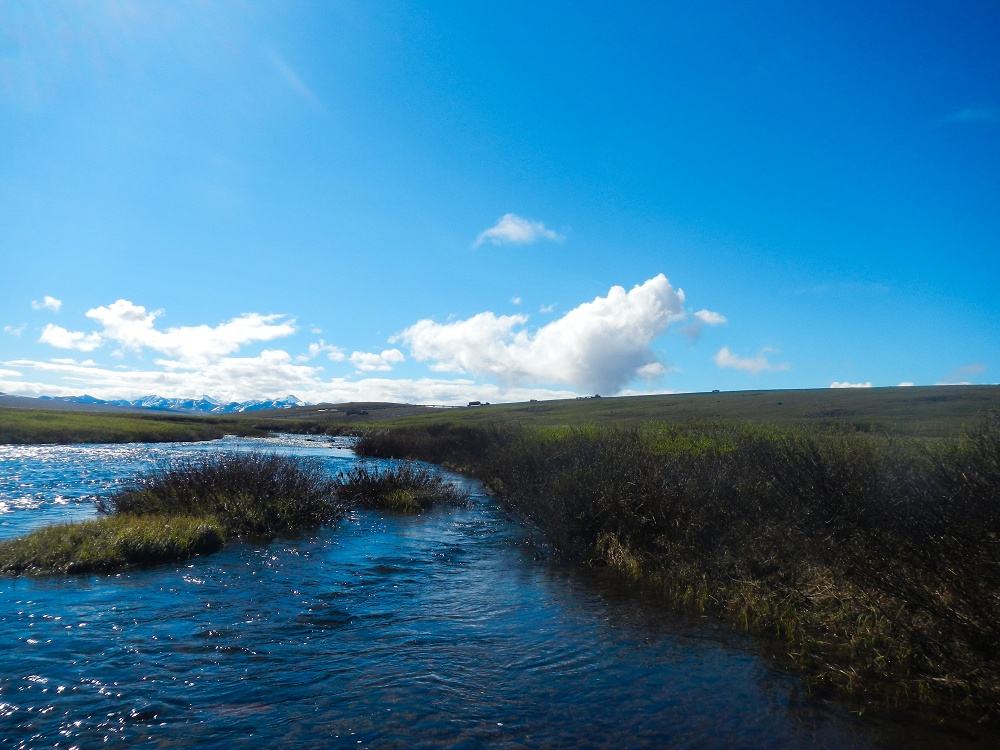

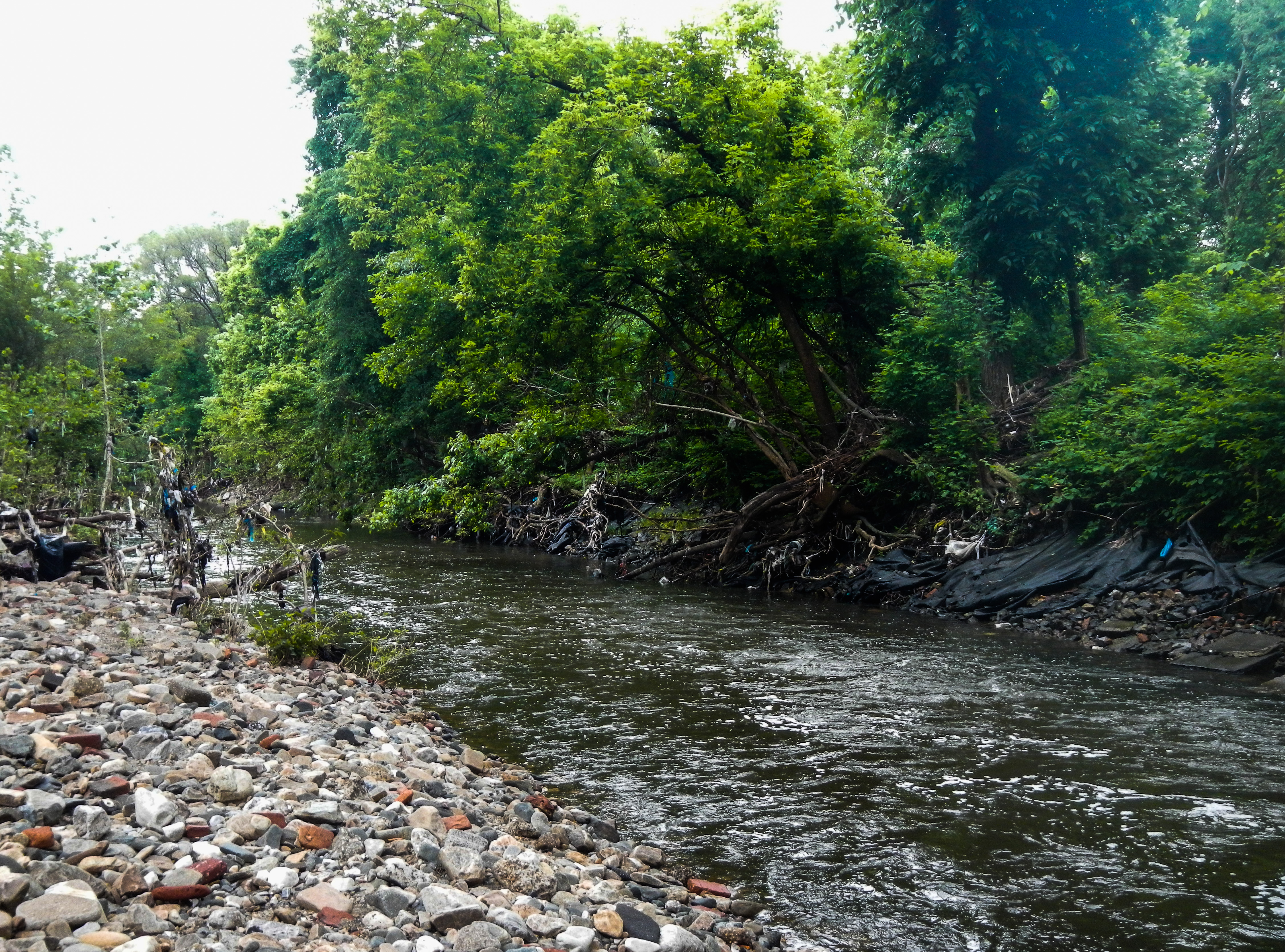


Leave a Reply
Want to join the discussion?Feel free to contribute!